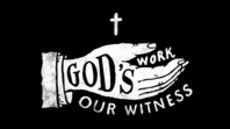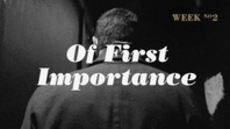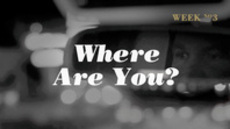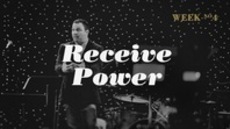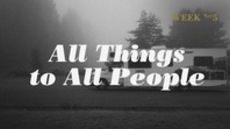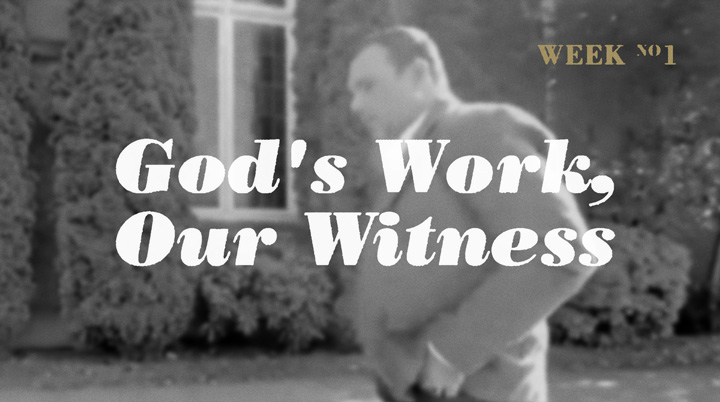
Can’t see the video? Download and install Flash to be able to view. Get Flash Here
This documentary gives a glimpse at the ups and downs of the early years of Mars Hill Church. It’s a story that includes didgeridoos during offering and one-dollar bills in the tithe—but more than that, it’s a story of how God was incredibly faithful to a group of people who had no idea what they were doing, except that they were committed to the gospel of Jesus Christ and to serving his church.
Pastor Mark:
Well, Mars Hill is like one big, crazy road trip with Jesus as the driver, and I thought it would be fun to take folks around and let them see where we’ve met in the past, where we’re at in the present, where we’re going in the future.
I get the great joy of seeing most of what Jesus is doing. Most people only get to see their Community Group, their church, their service, and they don’t really get to share in all the enthusiasm and joy of everything that God and his people are doing, so I’m really excited to be able to take folks around and let them see what I see.
The last thing I ever thought I would be was a pastor, because growing up Catholic, the pastor is a guy who lives at the church, is flat broke, is committed to never having sex, and walks around in a dress. So pretty much, that was a last career choice of all possible career choices.
Joe: When he got into high school, he was always into student body president, journalist on a newspaper, redid the high school— somehow or another, he got involved in that. He was always into something.
Yeah, I was a nice—at least I thought—nice, moral Catholic guy. I had a pretty bad temper, did well in school and sports, was dating Grace as a high school student, sleeping with her. She was a pastor’s daughter. So definitely, life was put together wrong.
Grace: He introduced himself to me in the hallway. I think it was at our locker or something, and he asked me if he could have my phone number, and I said sure, and we talked for three hours that night.
And then I got a scholarship—tuition, fees, and books—for leadership, but the situation was I had to stay in the state of Washington to get that money. Washington State University had one of the top five communication programs in the country, so I decided to go there, just because that’s where I got the most money.
So she graduated a year before I did, and then she was at Pacific Lutheran University in Tacoma, and I went out to WSU, was in a frat for about a week or so, didn’t really like frat life. I didn’t drink at all, so if you’re not gonna drink or sleep around, being in a frat’s pretty much the worst choice. I moved out, and then Grace moved out to be with me in college right after I became a Christian.
She’d given me a Bible, as soon as she figured out I probably wasn’t a Christian—because I said I was. You know, I believed in God, and I tried to be a good person, but I didn’t know Jesus. So she gave me a Bible, and I got an opportunity to sit down and read it in college, primarily out of curiosity. I just was wondering, you know, what does it say? What does Jesus have to say? And became a Christian. I would think in the book of Romans is where it all started to click for me.
I didn’t have a church home. I had to go find a church home then, as a brand-new Christian. I didn’t know what I was looking for in a church, which was scary. I met some students at the university who, you know, they were in—they called them Bible studies. I didn’t know what a Bible study was. And they seemed like nice guys, and so I checked out their church.
I praise God all the time for that church. He was a solid Bible guy. It was Pullman Evangelical Free Church. Doug Busby was the pastor, just taught through books of the Bible, taught me all about Jesus. He had these Bible studies that he led as well, so I got in a bunch of those.
At one point, I think I was in six Bible studies. I didn’t know you weren’t supposed to go to all the Bible studies. So they passed out a clipboard, said, “Hey, we’ve got these Bible studies.” I was like, “Well, I guess now that I’m a Christian, I should go to these Bible studies.” So I signed up, I think, for all of them.
So I called Grace, and I told her, “I was reading the Bible, and I think I’m a Christian now.”
Grace: And then he called me and told me that he had accepted Jesus, and I was thrilled. I wasn’t sure even what to say. I remember being very emotional and crying. So I just started asking a lot of questions, how it happened and why he wanted to be a Christian. I was trying to find out if it was for real.
She had become a Christian as a little girl. Her daddy was a pastor, but then she wasn’t walking faithfully with God in high school, and she really came back into a very vibrant relationship with Jesus in college.
Grace: When I was in college, I realized I was quite a hypocrite. The Lord opened my eyes, and I chose repentance.
And God sort of got her heart and my heart at about the exact same time, and so that’s when we decided we really did want to be together, but we’d gone about it the wrong way, but we would kind of start over as Christians and do it a different way.
In the springtime, they had a men’s retreat they were advertising at the church. I had never been to a men’s retreat. I didn’t know guys would go in the woods unless they were going to shoot something.
One of the pastors who was teaching at the men’s retreat said, you know, “You guys need to go get some time with God and pray and talk to him and spend some time with him.” And okay, I’m going to do that.
So I remember going for a walk alongside the river, some camp in the middle of nowhere down in Idaho, and just told him, “All right God, I belong to you and I love you and whatever you want me to do, just let me know.” I didn’t really know what I was asking. And God audibly spoke to me. I was wide awake, just going for a walk. And people ask, “Well, what did he sound like?” Well, he sounded like he was in charge, that’s for sure.
Grace: He came back from the retreat with just this crazy energy that oftentimes you have when you come back from camp or something like that.
And he [God] said four things. He said, “Marry Grace,” which I was glad to hear because that’s what I wanted to do. “Plant churches, train men, preach the Bible.” He said four things, and I’m, “Okay.”
Grace: I didn’t know what to do with that information. I thought, “Well, okay, marrying sounds reasonable. We’ve been dating a little while. And pastor? I don’t know. I don’t know about that. I mean, I’m a pastor’s kid, but what does that look like for us, and do we really know if that’s possible? I mean, we’re still young.” It was overwhelming, but it was amazing at the same time.
And so I asked her to marry me. It was around Christmastime, and then we got married the following spring before school started. We got married on August 15 and then went back to college.
Grace and I were renting a house in Wallingford, not far from here, just a couple of miles away, and we were working at Antioch Bible Church. I was interning as the college pastor, and they had a college ministry that was small and already going. And during the summers, they actually met in this area at the park across the street, and they used this church building. I did not name it. It’s shameful. They called it Zoo Crew.
Erin: In college, we had a group called Zoo Crew, where we would meet a lot at the Woodland Park Zoo, and that’s where I met them. That was probably our first ministry outreach that I can remember from our college group, an extension from Antioch Bible Church, where we were getting together for volleyball and just inviting people that didn’t know the Lord to that, and I believe, Mark, where he really started preaching. I would just say a lot of the beginning, it was—it was a lot of grace from the Lord.
Pastor Phil: We were going to a church at the time, liked it. We were plugged in and just felt like God was calling us to go check out this new church. There was nothing cool about it. There was no cool music; the music was terrible. When we started meeting in that room upstairs, it was hot and musty and dusty and she [Jen] had to stop coming because she was pregnant and it made her sick. So I couldn’t even go to church with my wife. We felt like God wanted us to be there. There was no other reason.
And so when we went to launch Mars Hill, we started a Bible study in the house. It outgrew the house. And since we had a little bit of a relationship here, and the pastor at the time was a good guy, he allowed us to use the building, and so we started using the youth room upstairs, mainly because it was free.
We’re going up to what is a third-floor, basically, attic. It was used, I think, at the time, as kind of a youth room. So we started meeting, actually, in this room. I think it was January 1996. We’d outgrown our home. Had, I don’t know, maybe fifteen or twenty people in our house, and it got too big for our small rental home. And so we launched the evening service here, five or six o’clock.
And it was really simple. So I would get up in the morning, put my sermon together, and then I would write out the sermon notes, type them out. I would take them to Kinko’s and photocopy all the sermon notes, and then I would get the Bibles and the books we were going to give out, load them into my Toyota pickup truck. We had two speakers that were actually home speakers that some rocker brought, and jerry-rigged them. We had a soundboard that we stole from Antioch Bible Church.
What does that mean?
Well, they—I was a college pastor at Antioch, and they had some extra gear in a closet, and so I took it because we needed a soundboard, and I put it in my truck and drove it over.
As well, we had a little pulpit that somebody built for me. We’ve actually still got that. I saw it at the downtown Mars Hill location. And we had an overhead projector because we had to do song slides. So it was literally just a light bulb, and then teardown was me.
So then I’d put the cords away, put the overhead away, and put the chairs away, and put the tables away, and so we got home really, really late, and we were still working jobs at the time. And we actually met in this room from January until probably about September. We officially went public with the church in October. So it actually took us that long to fill this room up, January to September.
And once we got to thirty, forty people, then it started feeling like a really big deal. And so then we had to move into their main sanctuary, and that was $1,000 a month.
We never did collect an offering. Instead, I left a simple basket in the back and just told people, as they felt led, they could give. The worst Sunday we had, our total collective Sunday offering was $137. And so for the first years, the church budget was just our personal budget. There were some times that were really brutal, where we didn’t even have the rent money.
So Grace had an old Subaru that she drove, and I had a Toyota pickup truck. Between the two vehicles, we literally had almost half a million miles on the two vehicles. And Grace’s Subaru, she’d leave it parked out on the street in Wallingford in front of our rental home. And on multiple occasions, because the streets are narrow, people would hit and sideswipe that Subaru. And I think it was at least three times. People came and knocked on the door and told her, “I’m sorry, I just hit your car. Let me give you a couple of hundred bucks to cover it.” And so there were multiple months that we actually paid our rent and kept the church afloat because people kept hitting the Subaru. By the end, it was pretty battered, but it paid the bills.
Chris: Yeah, it was completely—I mean, there wasn’t any support, for that matter. I mean, there was very little. You know, it was all about guys that are, you know, nineteen to twenty-two or twenty-three years old, saying, “We’re going to plant a church, and we’re going to do this and we have no idea how to do it.”
How were you guys learning how to do ministry?
Grace: [Laughing] Nobody taught us how to do ministry.
How did I get ordained? I needed to be licensed so I could do weddings and funerals and stuff, so I ordained myself. I got a couple of pastors together and said, “I don’t know what it means to be ordained, but I know I need to get ordained to do weddings and funerals. So could you guys go ahead and ask me some questions? And if you think I passed, just take a vote.” So I basically put together an ordination committee, and I got myself ordained.
You know, and I thought, for sure, we’d probably tap out at two hundred. I thought if we can get this thing to two hundred, that would be amazing.
And I had big vision for more. I put together a forty-page vision statement. I said, “We’re going to start a school. We’re going to plant churches. We’re going to do a record label.” I had this whole vision, and I handed it out to, like, fifteen people, and they’re like, “Are you kidding me?”
So I had big dreams. But to be honest with you, man, if we could just get up to two hundred, I thought that would be amazing.
I don’t know, maybe it’s different when you’re planting a church in a place that’s more Christian. So maybe you start at a big church, and then you get some good people, and they become the core group, and you raise money, and you go rent a big building, or you go buy a building, or the denomination writes a fat check. I mean, we weren’t talking about revival. We were talking about planting the church, not taking, you know, a bunch of Christians and getting them excited, but planting the church starting from zero.
Nazi Porn and Nietzsche?
When I wasn’t working, I would literally just go to a coffee shop. I would go to an Irish pub in Wallingford. I would just literally walk up, introduce myself. “Hey, my name is Mark. You know, I’d like to talk to you about some stuff. Do you got a minute?” And I’d—they were like, “Yeah, what do you want?” “Hey, Jesus. Where are you at with Jesus?” If they said, “I’m a Christian,” I’d be like, “Great, I’m starting a church, man. I need some help. I need you to get onboard?” And if they said they weren’t a Christian, I’d try to close them, and make them into a Christian, and then try to get them onboard.
The new Christians have the weirdest questions. Like, one guy got saved, and he had an enormous porn collection, and I guess it was worth a lot of money. And I told him, I said, “Dude, now that you’re a Christian, you’ve got to throw out your porn collection.” And he looked at me, totally shocked. He said, “Well, it’s vintage porn.” I said, “Dude, I don’t care if it’s vintage porn. It’s porn.” He’s like, “But I’ve even got Nazi porn.” I was like, “I didn’t even know there was Nazi porn. I can’t believe you have Nazi porn.” And I said, “Dude, you have got to get rid of your massive vintage Nazi porn collection.” He said, “Okay, well, I’ll sell it.” I said, “No, you can’t sell it. You can’t give it to somebody. Like, you’ve got to destroy it.”
That was everybody. That was everybody, every day. Everybody—you know, “I’m a heroin addict.” It’s like, “Hey, get in line.” It’s like the DMV. Take a number.
These were people who, you know, they were not, to say the least, they were not churched. These were not the kids who, you know, grew up in a homeschool co-op, and the girls made their own dresses, and the boys buttoned their top button and won the Bible trivia contest. Like, that’s not who we were getting at all.
Jeff: When I first showed up to Mars Hill Church, there was no music at the time. It was just Mark preaching. It was crazy. I had never been to a church without music. It was awesome.
I always sat in the front row with my microphone on because if anything went down, I needed to jump up and take over. I think it was the first night, we had an arty guy get up—we had a lot of arty guys—get up and read Nietzsche’s “The Madman.” Instead of the Scripture reading, he read Nietzsche’s “The Madman” with all the lights off. It’s dark at night by candlelight, with a flashlight in his face, screaming and yelling dramatically. Freaked everybody out who was a Christian.
Everybody just wanted to get up front and turn it into, like, open mic poetry slam, heretic reading night. So then, eventually, our bands, all our musicians left. Like, “Well, if this is going to be one of those Bible places where you’re in charge, we’re leaving.”
So they all left. We went, I don’t know, weeks, maybe months, no music at all, which just meant I had to preach for, I don’t know, an hour and forty-five minutes to fill up the whole service with nothing but a sermon.
I’m not saying I’m a great preacher now, but it was not good. I think I made up for content and clarity with volume and anger. [Ah!] So I would just yell as loud as I could as long as I could, and apparently at least a few people found that compelling. Why? I have no idea.
Jen: I feel like we traveled around. We were like nomads.
Yeah, there were certain Sundays that we could not get a building, and so we’d meet in parks. We had church in this park next to the zoo on more than one occasion. And then when the summers came and the weather was decent, I got this idea to teach an outdoor Bible study that people could invite their non-Christian friends to, and that led us to doing an outdoor Bible study down by the University of Washington, right off the Montlake Cut.
We’d come down here for teaching time and baptisms. You know, and on a bad night during the summer here, we’d have sixty, and during a good night, we’d have one hundred maybe. And everybody would just throw blankets and towels out and sit down, and then I would stand up and teach. People would ask questions and talk about Jesus. And then for the people who did become Christians, we’d baptize them right down on the right, just climb down into the boating channel.
Yeah, one of the real draws for the outdoor Bible study was you could smoke. You could smoke during the Bible study. And so folks like the Harlemans and the Hjertagers and such, they actually came. It’s now Pastor James.
Kathryn: My roommate, Dave, got a DJ job at a Mexican restaurant by day, a Goth fetish club by night, and he was going to be the DJ. So we, a whole bunch of us, decided we would go down to try and support our friend Dave at the Goth fetish Mexican restaurant.
Pastor James: We didn’t know where to go because in the back room there were crazy things going on. So we would just—I would just chain smoke and we would talk about movies and different things.
Kathryn: He had a great pickup line. At the time, obviously, we weren’t Christians. And he then said, “So, I have all of the X-Files on videotape at my house.” And I was like, “That sounds like a great idea.”
Pastor James: We were dating for three years, and that’s when I stumbled into Mars Hill Church with my roommate and became a Christian. And I was like, “Oh, what am I doing? I’m dating a non-Christian. I don’t know what to do. Do I have to break up?” I was just like, “God, I’ve been a Christian for five minutes. What do I do with my relationship?”
Kathryn: He was so excited about the church and the sermons and all the things that he was learning. And he would bring me the notes, and he’d want to walk through them and talk about it. He was so excited. I went sometime in early 1998, and I remember it was dark and brooding and kind of heavy music and candles, and I thought that was really cool.
Pastor James: Just no Mexican food or fetish club in the back.
Kathryn: No Mexican food, no whippings going on in the back. So that was good. I don’t remember a specific light-going-on moment, but shortly after that, I remember feeling led to take Communion.
Greg: My friend, James, who’s Pastor James Harleman, he was going to the Wednesday night Bible studies.
Pastor James: Greg and I were non-Christians together, hanging out, knew each other since 1992. Like, we’d do drugs and different things, and just take summers off, and eventually just invited him and the gal he was dating at the time down to one of our summer Bible studies because we all smoked. We could smoke, check things out, didn’t go into a church building.
Greg: Right around that time, the Lord was really working on both of us. I came back to just following God, and she wasn’t really into the God thing.
I counted the offering, and we started getting these bundles of ones. And I was like, “Where are the bundles of ones coming from?”
Stephanie: Greg and I met in a strip club, where he was a customer and I was a dancer.
And so then Stephanie was a new Christian. A lot of people were getting saved, and she didn’t know that she couldn’t still be a stripper. And so we eventually told her, like, “We don’t have Christian strippers.” And she literally told me, you know, “But I’m tithing.”
Stephanie: It was just like, “Hey, the whole aspect of your life. “Here’s your job and your career and your financials.” And, whew, out the window.
So then she had to go back to the strip club and tell the girls that she got saved and she was leaving, and she gave them gifts and shared the gospel with them. And you can ask her. She might’ve even left a Bible with them. And Stephanie is the best.
Stephanie: And Mark was great. Mark and Grace, they were like, “We will show you how to make a budget. We will show you how to live. We will show you what marriage is supposed to look like. We’ll show you what life as a believer is supposed to look like.”
Greg: We ended up getting married there on the dock.
Pastor Jamie: I showed up in 1997. I was 19, total punk, non-Christian, wasn’t walking with Jesus.
Pastor Phil: He [Jamie] was a punk at our wedding. All the family was over from Montana, and we’re at the apartment. I think it was the day before, and we were hanging out at the apartment complex. There was a swimming pool there, and we’re hanging out. And he’s got his shirt off, and he’s got on one of his arms, there’s this smiley face. It’s like pus and oozing junk. I’m like, “Jamie, what did you do?” He was like, “Well, we got drunk and made a tattoo with cigarettes.”
Pastor Jamie: The first service I went to was probably at Laurelhurst.
So we met at the other church by the zoo for the better part of a year between core group and launch. And then there was a church that died, a Presbyterian church in this area called Laurelhurst. The church was ultimately going to be sold, but they were willing to rent it for a little while, just to make some income until it sold.
So we moved here, and this kind of gave us a big boost because we could have offices here. So finally, we had an office. We had band practice space. There was a kitchen, classrooms. So I started a midweek—basically, a small school. We’d do church history, and Bible, and apologetics, and trained leaders, and it felt like it was getting settled, and it was getting established.
And so we had maybe one hundred people when we moved in here and one night service, I think it was at six o’clock. And then it filled up and we went to two services here and the church finally started to grow and get some traction, and then it all fell apart.
So we moved into this building around Christmas 1996. The church was just a few months old, and we were here for, I think, a couple of years. The church that had been here died, and so we were able to rent a few classrooms, a few offices, and use the main room here on Sunday nights, and it was pretty cool at the time. A lot of paintings from our artists, candles, and kind of long, dark winter months of Seattle. It worked out pretty well.
[Jesus, don’t miss the big E on the eye chart. It’s all about Jesus.]
We were having a hard time really growing. Kind of an obscure area and had a hard time attracting people, so I decided I’d preach through the Song of Solomon, and that did it. We had the attendance really, really grow, and so this actually filled up all the way to the balcony. And then we went to two services here, and they started filling up.
Around this time as well, we finally started to pick up some more musicians—we’d lost our musicians early on over theological issues (many of them kind of basically decided not to be Christians)—and one of them was Matt Johnson, who is now Pastor Matt.
Pastor Matt: I didn’t really grow up in the church. I became a Christian in high school. So there wasn’t like the trappings of, like, this is how you do traditional church music. When I came into Mars Hill, I was a touring musician, sort of in the punk indie rock world. Early on, man, it was a mess. The sound usually probably wasn’t very good, and there was always a problem with the sound gear. And God blessed the guys that volunteered for that, but probably half of that crew, they weren’t technically sound guys. They were just guys trying to help out and learn as we go, and that’s sort of indicative to the whole thing. We were just learning as we go, right? I mean, we were all just a bunch of jokers.
We got a notice on a Monday that we lost our lease. We were just on a week-to-week lease here because they were trying to sell the building. They ultimately did sell the building. We got a notice on a Monday, saying, “You’re kicked out. You’re done. The building has been sold. You’ve got to vacate premises immediately.”
So I got my truck, showed up, and we started loading everything up and started moving because we only had a few days to do so. And that meant the following Sunday, we had nowhere to hold church. I was pretty panicked because I had to leave town on Wednesday to go speak at a conference because that’s how I was still paying my bills.
So I went to a pastors’ meeting at downtown Seattle. I think it was on a Tuesday. And the guys were like, “Do you have any prayer requests?” I said, “Yeah, I do.” It was my first time at the meeting. “I need a building.” And they said, “Okay well, we’ll pray about that.” I was like, “No, I need a building Sunday.” And I think it’s Tuesday. “I’m leaving town Wednesday, so I need a building today.”
So the Presbyterian Church downtown took us in. And to be honest with you, I’m shocked that we actually survived because the next day—I think it was Wednesday—somebody broke into the church and stole our only computer that had our entire database. So we lost everybody’s name, address, phone number. We had no way to notify people that we were moving.
And so we moved and couldn’t tell anyone. I showed up to preach at downtown, and hardly anybody was there. It was one of the most discouraging times in my whole life.
Some of the guys approached me, including a guy named Marc Policani, who was a friend and is still at the church, and said, “We need to do this thing called a website, and then we could put all of the church information on this thing called the Internet, and then, you know, when we get kicked out, and we’re homeless, people can find us because we can just change that information.”
And so they went ahead as a team of volunteers, and architected and launched the first Mars Hill website and shortly thereafter started putting the sermons online. And we were one of the first churches, I think, to have a website and one of the first churches, I’m certain, to give away sermons for free, and that was way back in the late ’90s.
Yeah, I mean, you know, everybody said, “Oh, you’ve got to do a tape ministry.” And then it was, “Oh, you’ve got to do a CD ministry.” It’s like, we got the catalogs, the church catalogs on how to buy the tape duplicators and the CD duplicators. It’s like, “We can’t afford that. We don’t have any money.” I mean, at that point, we didn’t have a photocopier. We couldn’t even make photocopies.
If you have money, you don’t have to innovate; you just purchase. That’s why churches try to buy cool, which is like, “If we don’t have anybody cool, we’ll just go out and hire somebody cool.” Well then, everybody knows they’re not cool because they were for hire.
I mean, one thing you’ll continually be able to theme and thread together in the story of God’s grace at Mars Hill Church is that things would go very, very wrong, very bad, and then it would force a season of creativity and innovation and commitment and toughness. And then the church would do things differently than other churches, and then the church would grow.
The worst seasons ended up becoming the most innovative. Out of sheer necessity, when you’re flat broke and on the brink of ceasing to exist, all of a sudden, in the grace of God, the Holy Spirit brings to you some creative people or some ideas or resources to do things in a way that other people, perhaps, haven’t done to that point. And then all of a sudden it works, and it opens up a whole new way of doing ministry, church planting, Internet use, sermon delivery, media, all of that.
Once we got kicked out of that building, literally everything moved back into our house. So offices in our house across from our bedroom, interns in the basement.
Pastor Matt: Poor Grace. Like, it was so ghetto down there because, I mean, you know bachelors. There’s like three guys living down there, and the dishes would just stack up, stack up. I remember they’d start stinking real bad. And every couple of weeks, like, we’d see the dishes done. I’d come home from work, and I’d say, “Hey, man, did you do the dishes? Thanks.” He was like, “Nah, I think Grace did them again.”
Grace: We shared laundry facilities and so, yeah, I just ended up cleaning half the time, because it was—I couldn’t even stay down there to do laundry. It was so disgusting.
Pastor Matt: Sorry, sorry, Grace.
We had just picked up Pastor Tim in Albuquerque, New Mexico, around that time and he had never played an electric guitar. He’d never sung in a band. He’d never written a song, and he couldn’t sing, man. When he sang, it actually sounded like he got captured by Al-Qaeda. So we had to pay for vocal lessons and go buy him an electric guitar.
Pastor Tim: [The kind of worshipers that he is seeking are those that will worship in spirit and truth, and that is a thought that has changed every aspect of how I think.] When I came to Mars Hill, I had never really been in a band. I played a lot of acoustic guitar with hand drums, but I hadn’t really been in a band. I hadn’t ever really written a song, and I’d never owned an electric guitar—a lot of acoustic, a lot of flannel, a lot of sandals.
Tim and his wife moved out from Missouri to live in my basement and go work Joe jobs and give it a shot because we met him for twenty minutes at a conference in Albuquerque, New Mexico.
Pastor Tim: Because you weren’t at that conference.
Beth: No, no, it was just him.
Pastor Tim: You hadn’t met these people. You hadn’t read these things. I just came home from New Mexico from this conference and said, “Hey, what if we moved to Seattle now?”
Beth: That was a little harder sell for me. We had to pray about that for a while.
Pastor Tim: Yeah, because we didn’t know anybody here.
Beth: No, no.
Pastor Tim: So in August of 1999, we rolled into the Driscoll family’s driveway. It was the second time I’d ever seen Pastor Mark. We talked on the phone a time or two and exchanged a couple of e-mails. I think we both met Grace here in this basement while she was doing the laundry.
Beth: We had a dining table right here and some chairs, and there was a futon right here. It was a little nicer.
Pastor Tim: The bathroom was nice, right?
Beth: Oh, yeah. I’m not going to—I’m not sharing that part.
Jeff: Matt lived in the basement, and I was over there a lot, and I did silk screening. I cleaned off my screens in his shower downstairs and totally stained it. I think that was permanent. And so I wrecked his basement.
Beth: That’s the first thing I cleaned. I’ll just say that. It was okay for a period of time. We knew it wasn’t forever, so—
Pastor Tim: Years later, I would ask Mark, I asked him, “Why in the world did you do that? Because I’m pretty sure you haven’t just taken anybody else in, and I’m not sure I would exactly the same way, either.” And he said that he had a dream that God told him that I was moving here, and we were supposed to work together. I had no idea what was in store, but apparently God did.
So we started meeting by the zoo, and then we moved over to Laurelhurst on the other side of the University of Washington. Kicked out with six days’ notice. The Presbyterian Church downtown kindly took us in for a Sunday night service. The building was way too big, the room was way too big, it didn’t work at all, but it was better than being homeless.
Pastor Tim: Come time for the service to start, we’d turn off as many of the lights as we could, just have a couple of spotlights on the front. Sometimes we’d light incense. It was dark. It was moody. At that point, musically, the rule was, “We don’t have a license to play popular Christian music, and we never will.” Basically, there was just nothing that you had ever heard of before in church.
Pastor Joel: There were some things that looked kind of Catholic. Like, there were candles and stuff all around, but then there’s like a guy playing didgeridoo for the offering piece.
♪♪♪ [Didgeridoo playing]
Pastor AJ: First Pres, downtown, 150 people. Mark read an entire chapter of the Bible, and it was incredible. I’d never heard a preacher do that. We grew up in churches that tended towards the half of half of a verse for three points to a healthy marriage, and Mark read an entire chapter. And I remember walking down that right-hand aisle, leaving, and God said, “You’re going to work for these guys.” And so then that’s why we stayed because I was going to get to work for them somehow. But what I forgot to ask, though, would be, how much money was I going to get paid, and was it going to be a job that I liked? And it turned out that it was going to be an internship that paid me nothing at a live, all-ages concert venue, and I don’t like live music, especially not that stuff.
So this is the Paradox. After we were homeless and we started running services downtown at University Presbyterian Church, we wanted to get a more permanent home, so this building opened up.
Pastor Jamie: One of the elders had bought it, had a vision for putting a church there and doing a bunch of different things, music and stuff.
Pastor Tim: It was this old, beat-down theatre and when we got in there, I don’t think it had been used for quite a while, and it was in rough shape.
We did Sunday night services, and then we started running all-age punk shows underneath the cover of the church—not Christian shows. We didn’t have Christian bands. We didn’t preach at the kids, no altar calls, none of that—just hardcore punk bands coming through.
Pastor AJ: I think we did like eight shows a week and two worship services a Sunday, just crusty punk, indie. It was bad.
Pastor Joel: I counted it once. We ran over one thousand shows in three years and a lot of those shows were like hardcore metal bands and you’d have five to eight bands in one night.
Jeff: There was a band once at the Paradox that was from Japan.
Pastor Joel: I don’t even know what kind of music this would be called, but it’s some kind of, like, Pokemon, like, crazy Japanese stuff.
Jeff: The rules of the Paradox were obey the law. So we’re an all-ages club, right? So you don’t get naked and you don’t drink.
Pastor Joel: This guy and this gal come over from Japan, and they’re basically, like, performing all these songs to a CD that they’ve prerecorded all these tracks for, so this is kind of like karaoke.
Jeff: There was this language barrier, and he took off his clothes in the middle of their set.
Pastor Joel: The guy proceeds to take off all of his clothes and chase the girl around the stage, like, with a giant dog bone.
Jeff: Josh Norris at the time was, like, walks up: “No, no, no, no, no!” And there was this real language barrier, and he ended up totally embarrassing the dude, which was deserved because he’s nude in an all-ages club.
Pastor Joel: I would say that that was one of the biggest places where we saw conversion growth, was through the Paradox. There was this guy who was an atheist, straight-edge concert promoter that we were working with, named Wally.
Pastor Matt: Wally was the guy that was booking a lot of the hardcore shows, the straight-edge shows.
Pastor Joel: And he was pretty antagonistic about the church, but somehow we had managed to build a bridge.
Pastor Matt: You know, eventually, he’s having these long conversations with Jeff Bettger, and they’re having these dialogues about Christianity. So Wally starts showing up to church, you know, and I think he was the guy in the back, kind of with his arms crossed for a while, just checking it out.
Pastor Joel: And by the time we were done, he had given his life over to Jesus.
Pastor Matt: He came to Christ, and he’s still at Mars Hill. He’s going to the Bellevue church.
Pastor Joel: To this day, he ended up marrying a single mom and adopting her child, and he’s seeking to be a godly man and husband.
This is where I met Bubba and Shelly Jennings, Pastor Bubba. They showed up, and they were married, and they looked sober, and so I thought, “Well, they could be leaders,” and that worked out really well.
Shelly: Yeah, I looked it up online, and since there was a Sunday night service, it was easier to drive the sixty-five miles.
Pastor Bubba: I don’t think anyone talked to us the first time we were there. No one said hello. No one greeted us. It was dark, it was dirty, it was grimy. Pastor Mark yelled and screamed at us, told us to repent. We left that experience and on the drive home, we would talk about, you know, what had happened. And I remember looking at her and saying, “What’d you think?”
Shelly: And—but that experience, we were like, “That was awesome.”
Pastor Bubba: Yeah.
Pastor AJ: There was an event at the Paradox, and Pastor Mark’s getting all the guys together.
‘Cause guys would repent of sin, and then they want to meet and they’d be talking, “Oh, I’m sleeping with my girlfriend.” “Oh, I’m looking at porn.” “Oh, I can’t get a job.” “Oh, I don’t know what I want to do with my life.” And it got to the point where I couldn’t have that many counseling meetings, so I just decided to bring all the guys together and absolutely yell at all of them at one time. And so I called an all-men’s church meeting.
Jason: People actually flew in to attend.
Pastor AJ: The instructions are, “Grab two stones. Read 1 and 2 Timothy and Titus. And when you finish, read them again. And when you finish, read them again.”
Jeff: And we all show up and they hand us a pair of rocks.
We literally filled up every single seat. I met every guy at the door and I told them, “I want you to shut up. You’re not allowed to talk. Nobody is allowed to speak. You guys all just sit down and shut up until I’m ready to yell at you.”
Pastor AJ: And you just keep reading 1 and 2 Timothy, Titus; 1 and 2 Timothy, Titus, wondering, “Why do I have these two stones?”
Jason: I think half the people probably thought he was going to apologize for some of his harsher rants that he’d posted online and then say, you know, “You without sin, cast the first stone.”
Pastor Phil: And that silence was just so palatable, just like, “What’s going to happen?” Like you’re waiting for an earthquake, like, “When’s it going to hit?”
Pastor Matt: And Driscoll had just had it and he was losing his mind.
Pastor AJ: Pastor Mark then goes off on the guys.
Jeff: Pastor Mark gets up onstage and just starts yelling!
Pastor AJ: It seemed like a couple of hours, just yelling at us about all of our perversion, all of our laziness, all of our lack of drive and ambition, all of our ungodly living.
“You belong to Jesus. I’m giving you your stones back. It’s your church. We’ve got to fix this building. We’ve got to raise the money. We’ve got to do this thing. This is what God told us to do.”
So I got up there and I preached a sermon on what it means to be a man. I literally think the sermon went about three hours, screamed and yelled at all of the guys.
Pastor AJ: All of us just completely, like, laid open, and he says, “You guys are men, and until you find your own stones, use these.”
And then closed in prayer and told them to shut up and leave.
Pastor Matt: And for a lot of us, this is the first time we heard this kind of stuff.
Jeff: Hearing the truth that we needed to man-up and that God had something better for us, and we weren’t seeing clearly—
Pastor AJ: Guys glued those things to their dashboards. They kept them in their pockets all the time. It was just this reminder of God has made us men, and we will be men. Who does that stuff?
Jeff: We kept hearing that over and over and over again, sermon after sermon after sermon addressed towards men, specifically young men, specifically, taking initiative to lead and love well like Jesus. And that was life changing, life changing.
There were maybe 100 to 120 guys at that time. Probably the average age was maybe early twenties, twenty years old. You’re talking college guys. But a lot of those guys, to this very day, they did it, man. They’re running companies. They’re deacons, elders. They’re starting churches. They’ve gotten married. They’re having kids. Their lives are changed and they are still, you know, hands up, chin down, feet forward, getting it done. And it’s just really cool what God did in this place.
So we went from Emmanuel to Laurelhurst building, got kicked out of there with six days’ notice, ended up downtown, and we were again on a week-to-week situation there, so we had to find a permanent location.
I caught word that a church in an area called Ballard, which, from where we were meeting downtown—I’m trying to think about it—probably a thirty-five-minute drive out to Ballard, and Ballard is nowhere. Ballard is up against the water so there’s not even people there. It’s really far off the freeway, but there was a church there.
The long and the short of it is a number of churches were vying to get this free building, even though it was in rough shape. And to help broker the deal—we didn’t have Sunday morning services yet—I put on a suit. I had to go get one, and a tie, and got a King James Bible, and I started rolling over and preaching sometimes on Sunday mornings to all the older, more conservative Christian grandmas, hoping to get them to like this kid with a beard. I grew a beard so I’d look older.
It came down to it—us and I think it was a Chinese church—who was going to get this free building? Small building, middle of nowhere, one parking space. Hey, but it’s a home, and we were homeless. And hey, it’s thirty-five minutes away, but it’s a home. And they voted to give it to the other church.
Grace: At the last minute, it was a huge God thing. He just—they just all of a sudden decided they didn’t want it.
And the other church then turned them down because the building was too small, too obscure, middle of nowhere, and needed too much work. And so, yay, we got the free building that nobody else wanted, and that’s when we started our very first Sunday morning services.
Pastor Phil: The fact that we were now going to have morning church was just—we were ecstatic. It was hallelujah time. I mean, it was unbelievable.
We hadn’t had morning services because we couldn’t afford it. We were absolutely broke, and this guy named Brad showed up at the church, and he and his wife were very sweet and very godly, and I’ll never forget the day they sat me down, and they said, “We believe in what God is doing, and so we want to help pay for the renovation of this little church building.” And I said, “Well, that would be great.”
And up to that point, I think the biggest check we’d ever gotten in the history of Mars Hill was like $2,000 to $3,000. And he and his wife wrote a check for $200,000, no strings attached. They didn’t say, “So, we want you to do this with the money or that with the money.” They just said, “We trust you. We know God is in it. We think God’s got big things planned, and we want to help.”
And I remember—to be honest with you, I feel like crying just thinking about it. I mean, everything had been so hard, and you’re absolutely broke and you’re homeless and you’re exhausted and you’re frustrated. And at this point, the critics started piling on. And Mother Jones had been out, and NPR had been out, and everybody’s, you know, starting to criticize what we’re doing, and they don’t understand how hard it is, and the people that really are getting saved, and the good things that are happening.
And so they wrote that check and we renovated that whole building because Brad and his wife were the first ones to believe in the possibility of what we were doing. And what’s really cool is they’re still walking with Jesus, and they’re at Mars Hill Bellevue.
And it was at that same time when we started that morning service, that a couple showed up—and we were maybe eighty or one or two hundred people. I mean, it was just getting started. And this couple showed up. I had no idea who they were. And I took them out to lunch, and they said, “You know, we love what God’s doing here, and we love church planters and we love young pastors and we love Jesus, and we think God’s got big things for Mars Hill.” And they also, at that time, started being very, very, very generous.
And I won’t disclose who they are or what they’ve done, but their generosity, like Brad and his wife’s, in every way, allowed Mars Hill to get the facilities that would allow more growth so that more people could meet Jesus. And it was at that time that a few very generous people made a difference.
And had they not, to be honest with you, I don’t think Mars Hill would’ve made it. We were homeless. We were broke. And I think we would’ve probably just ceased to exist. And because of the generosity of a few people, that morning service went from forty to eight hundred. That was the absolute game-changer in the history of Mars Hill.
The only thing I can say about what happened at the Earl building was God showed up. I mean, because it doesn’t make any sense. It’s like, the building nobody wanted in the place where nothing is happening, with one parking spot, that I’m preaching because none of the other elders would take it—it felt like punishment—and it goes from forty to eight hundred, and the building got renovated because somebody wrote a check that’s one hundred times bigger than anything we’ve ever seen.
Like, all you could say is that’s a God thing. That’s a Holy Spirit thing. That’s a Jesus thing. God showed up. That’s it. We definitely were out-punching our weight class. I mean, Tim’s leading worship for eight hundred people. He doesn’t know what he’s doing. I’m preaching to eight hundred people. I know a lot less about what I’m doing than what Tim’s doing. You know, Jamie is still trying to get the pot scent out of all of his clothes, and he’s the administrator organizing the whole thing.
You look at the leadership, it’s like, “Oh, there’s Larry, Curly, and Mo. How is this getting done? Oh, it’s the Father, Son, and Holy Spirit. There’s another Trinity behind Larry, Curly, and Mo actually putting this thing together.”
So this was our spacious new building. The guy who generously gave $200,000 to renovate it, he and his really sweet wife, he actually painted this building himself as well, and their giving allowed us to put up some molding and paint and carpet. The thing was, when we moved in, absolutely Smurf blue.
And so this was our massively spacious foyer and then you walk into the main room. We had chairs, of course, all the way to the back. We would pack everybody in. We opened up these walls and put in doors so we would seat people all the way out, and then guys would stand up.
Grace: Men were standing up, you know, to come to church. It was ridiculous.
Shelly: I remember, like, it got to the point where, like, literally, people were sitting on the stairs outside, on the concrete stairs in the rain.
At the time we only had two steps, so the band was on the stage and I would preach from a step. And then I went on a cruise for an Acts 29 Boot Camp. We started Acts 29 around this time. And I got some weird vertigo inner ear thing so I was dizzy for like a year, and I had to stand on the stair and preach all day with pretty massive vertigo for about a year. This was it. And if you can believe it, looking at this room, this thing went to eight hundred.
Crystal M.: I remember just that it was a lot of the same people working hard every day. As fast as it was growing, there was still—it was this small group of people that were there every Sunday from six in the morning until ten at night; and yeah, there was just—so much got done with so few people.
Crystal H.: I don’t remember much of that season besides that it was just really intense, really busy, and we were just trying to—the guys were just trying to keep up with what God was doing. And so I think that all of us wives were just kind of holding on for the ride with our kids in tow.
This is when we first got to do real children’s ministry. We had kids’ classes. So families started coming. There was just one small men’s bathroom, one small women’s bathroom. I mean, this is it, if you can believe this. This is a church of eight hundred. That’s the men’s room. So I had to carefully time my going to the bathroom between services because you couldn’t get jammed up in the line.
A couple of nursery rooms, so we had rooms for little kids. Just a couple, but for us it was a really big deal because people were starting to have babies. I mean, now we’ve got almost two thousand kids a Sunday, most of them under the age of ten, but it all started with just a couple of classrooms.
I remember showing up for the first service of the evening here a half hour early. People are in their seats eating dinner. They showed up because they knew if you show up ten minutes early, you’re going to be in the basement or outside. You show up on time, you’re going to have to park six blocks away.
We drilled a hole from the upstairs main room and just used a home video camera.
Jason: I think it was my dad’s, like, old VCR camera. It was gigantic. It was like probably about that big. You had to put it on your shoulder. But I set it up with a tripod and I think it works.
And some Sundays, you could have one hundred people sitting on chairs and standing up down here, just watching what was going on upstairs because the whole main room was full. The side overflow room was full. Sometimes we’d leave the doors open and people would stand up outside and listen in and watch.
So that’s when we just kept adding services. So it went from one to like five services here, four or five services here in, like, six months. I mean, so you’re talking about adding a service every four or five weeks.
I don’t even know how many we were doing because we were still doing services downtown and were doing services in the Paradox, and we started a service in South Seattle. I wasn’t teaching that one. I was teaching the one downtown at night. I was teaching two more, I think, in the Paradox in the University District. I was doing three in the morning here, and then I think we added a night one here. I don’t even remember.
I think at the height, I was preaching seven times a Sunday in three locations, driving between them, preaching an hour to an hour and a half, sometimes as much as an hour and forty-five minutes in one sermon, doing six or seven of those for quite a few years.
I was probably depressed for a decade, literally, clinically depressed. Had God not spoken to me and said, “Do this,” no way. There is no way.
Grace: It was just heavy to carry the load of responsibility and all the people’s lives, and Mark felt that weight of those people that were coming.
Looking back, I mean, I regret probably ten to twelve years of my life. And Grace and I, our friendship started to wane. We just didn’t get—I mean, we got people living with us. The church lost its offices so we had the church office across from our bedroom, and a few thousand people a year coming through our home, and a bunch of singles and college students and homeless kids knocking on the door, nights, weekends, interrupting, coming through. I mean, so our friendship was not what it should’ve been, you know, and then Mars Hill just kept going.
It was not a happy, joy-filled experience, and I was depressed and angry and frustrated and screaming at people. And yeah, I mean, it was—it was horrible. And people say, “Oh, and God used it,” and it was horrible, and, “Oh, it’s amazing,” and it was horrible. And it was just the absolute worst, but God was saving people.
And what’s really crazy is a ton of those people are still with us. Many of them, even if they’ve moved away, are still walking with Jesus. Tons of them have gotten married and they got kids, and now, you know, I mean, it’s weird for me because, like, I’ll drop the kids off at nursery, and it’s, like, oh, there’s all these people, and you wouldn’t know today because they met Jesus, and he’s changed their lives.
So many years down the road, it’s like, yeah, it was awesome. Praise God, it was worth it, but in the middle of it it’s just like, “God, do you hate me?” And I mean, I remember literally having multiple conversations over the course of the decade with God. It’s like, “Okay, I know you’re sovereign. I just don’t know if you’re any good. I know you’re in charge, but I just don’t know if you’re nice. It seems like you hate me because this is horrible. Why would you do this to somebody and make them go through this?” And that was, I don’t know, ten to twelve years.
Did he ever give you any answers?
No, he never answered those questions. Never answered those questions, man. I was asking the wrong questions, and he never answered those and—
What are the right questions?
You know, I should’ve—the question I should’ve asked was, “God, how are you trying to change me?” Because, obviously, I had a lot to learn and repent of and grow, and I don’t believe that God does evil, but I believe he uses evil to do good. And he put me in a hard situation because I was pretty stubborn and tough and difficult. I still can be and often am, sadly.
And so, yeah, I should’ve asked questions like, “All right God, what am I supposed to learn? How am I supposed to change? What do you need me to do?” I should’ve asked questions like that instead. And sadly, I was asking God questions instead of asking me questions.
That’s when we decided, ultimately, we were going to need to consolidate everything and get one big building, and that led to the big Ballard building. So Pastor Jamie negotiated the deal, and he’s the best. Got us the old hardware store built by the Mormon guy, that was later converted into the boat store.
It was forty thousand square feet, which was way bigger than we thought we could ever use. At the time, we were a church of eight hundred, thought, “Well man, we could get one thousand seats into here,” which is way more than we thought we’d ever fill.
The bank told us, “You guys are so young, so poor, so broke, there’s no way in the world that you’re going to be able to cover this mortgage, so you have to go out and get a tenant to rent from you, somebody that has a stable business history, unlike your church, and that we can guarantee that their revenue will help cover the cost of the mortgage on the building.”
Pastor AJ: And we can only afford it if we get NAPA Auto Parts to rent five thousand square feet, where the children are right now.
Pastor Tim: So it was going to be Jesus and auto parts. So they did all the drop ceilings. It was configured all in the same way that it is now. I mean, NAPA paid for all that to be developed, and then they pulled out, like, right as we launched.
Pastor AJ: I just remember that right away we needed the space back, and so we were really concerned. Are we going to have to go to NAPA now and say, “Hey, can we have that space back?” And NAPA’s coming to us saying, “Hey, can we give you the space back? It’s not working for us.”
Pastor Jamie: It was probably $100,000 worth of work they put into our space for us.
What was to be an auto parts store is now actually our children’s ministry, and we do need all the square footage. And had we not seen God save us from ourselves, we would have no place to put all the kids at Mars Hill Ballard.
Mars Hill Ballard blew up, completely outgrew the building.
Pastor Jamie: And the church grows again. That’s what you want. You want the church to grow, but that becomes your problem and so you’ve got to figure out how we’re going to grow sustainably, and what we were doing wasn’t sustainable. It wasn’t sustainable for the leaders or the congregation. We’re burning out volunteers. It’s almost like you’re using up volunteers and we’re asking them so much and we’re asking so much of the staff, and we had to figure out what’s next.
Pastor Bubba: And at that point, we realized we had to do something different, something outside the box, something we’d never done before. And that’s when the discussion of doing video came about.
People were talking about video and multisite, and I thought, “Man, I don’t know. My Shrek-sized head yelling at people for an hour on a screen, who’s going to show up for that?”
The first time I met Pastor Steve, it was after service at Ballard. I saw this red-headed guy who tucked his shirt in and looked like he had a job, had never been in rehab, no tattoos, sensible haircut, and his son was with him, and they had a big bag and they were walking around picking up trash.
Pastor Steve: Sam, who was six at the time, he could crawl under the chairs, right along the—and he would come out in the end with stuff, and we would work together as a team, and it was a blast. I enjoyed that because I got to serve with my son in a way that he got to enjoy it.
And I thought, “Well, that guy looks unlike the others, employed, has a child not out of wedlock. He’s a whole new kind of guy at Mars Hill.” So I went over and introduced myself, and I thought—man, I really—something just about Pastor Steve I really liked. Finally, he tells me, “Well, I’ve got two degrees in theology, and I’m a burned-out church planter and I just want to go to church and serve, but I’m really not looking to become an elder and I don’t want to get back in ministry so don’t try and sell me. You know, please give me a break.”
I was like, “No, no, no, no, man, you’ve got a great family, awesome wife, great daughter, great son. You love Jesus. You’ve been in ministry. God’s called you to be an elder. You’re going to be a pastor at Mars Hill. We’ve got to get you on staff.” And so Steve did join our staff. And when we sent him up to do Shoreline, it was because he lived right there, and he was godly, dependable, hard-working, trustworthy. And so Pastor Steve did that and killed it.
We started with one service here. It seats maybe a couple of hundred people.
Jen: We were part of that Shoreline thing, and I thought it was crazy. Like, who is going to come watch Mark on a screen? I just—I thought it was ludicrous. But we were supposed to help with it, so we did.
Pastor Jamie: Yeah, the poor people that were there first, the video quality was horrible because we tried all these different methods of technology. Half the time, the sermon wouldn’t work. I know Pastor Steve is there sitting in the front row. “Am I going to have to preach today? Am I going to have to preach today?” And he’s always on call, which is a horrible way to live your life.
Pastor Steve: And there were many times that the service had started here, we were in the middle of singing, the band was on the stage, and we had no DVD. We had no sermon. And I was looking for someone to run through the back door and for them to go like this, or to go, you know, “Take more time. We don’t have it yet.” And it was—it was just nerve-wracking. Being half-prepared to probably not preach, but maybe you have to preach, is not a good place to be.
Pastor Tim: I specifically remember being in the room with the elders and praying for what God would have us to do, and none of us were confident in this. We were like, “I don’t know what is going to happen, but it’s the only option we’ve got left to try.” We had no idea that that would actually be the way forward for church planting for us.
What was crazy is even with a setup, teardown, no offices, no midweek, and video that’s not working, we still grew like crazy. Went to one, two, three services, had to add a night service, outgrew this building, had to go to an entirely new building because God just kept saving people here too, like he had everywhere else.
Pastor Tim: Here’s the deal. No model works in itself. What works is preaching the gospel of Jesus Christ. And where that is done faithfully and powerfully, God draws people to hear it and be changed by it. And I think the model is a lot less important than that heart of proclaiming the truth and the glory of Jesus. And that’s what he said because he said he builds his church. It’s not all on us. And certainly we work hard, and certainly we want to steward his blessing and the grace that he’s given to us in every way possible, but what makes this thing happen is God. He’s the author and the sustainer, and we point to him. We want people to know him. And as that happens, by some crazy fluke of his grace, people show up and are changed by it. And for us to try to take credit for that in the middle of it would be arrogant and a complete deception on our part.
Well, once we were able to go multisite, video, beginning here at Schirmer auditorium, that opened up the possibility of Mars Hill to forever be changed. We were not limited by a building or my presence. We were able to go from six services, which was killing me, to more than thirty services today; from one state to four states, and that allowed the church to go from a stuck church of five or six thousand in one location to now it’s doubled, a church of twelve thousand–plus a Sunday, and we’re asking God for fifteen thousand at some point before Easter.
And that allowed us to do the biggest thing we’d ever done, and that was to try and bring everybody together, at least those people from Mars Hill in the greater Seattle area, for our big, epic Easter service.
[Happy Easter, Mars Hill Church! [Cheering] The reason we believe that Jesus Christ is the only God is because Jesus Christ repeatedly, emphatically, unapologetically, openly, publicly declared himself to be God! Jesus Christ is God! Jesus Christ is the only God!]
It was the biggest church service in the history of the Pacific Northwest, in what used to be the least-churched region in the least-churched city in the country.
Jeff: Twenty thousand people at Qwest Field worshiping Jesus.
Crystal M.: I mean, it sounds kind of cheesy, but to see the Jesus flag raised was incredible, and to see that many people there for Jesus.
Jeff: When the Jesus flag was raised, I just starting bawling. I lost it like a little baby. I was just in tears crying. I couldn’t believe that God was doing this in my city.
Pastor Joel: I was both fired up about the gospel and fired up about what God was doing, and the fact that we just had 17,500 people show up.
Pastor Tim: It’s the only time in the history of Mars Hill when everyone had been in one space probably since it was in Mark’s living room.
For me, it was a great encouragement to see that many people worshiping Jesus. It was a great encouragement to see that many people meeting Jesus.
Pastor Bubba: To see so many people meet Jesus and to see hundreds and hundreds and hundreds of baptisms.
Pastor Phil: It felt miraculous. It felt like a little tiny, tiny, tiny taste of what heaven will be like with all those people worshiping and are going to be there because of what Jesus did for them and his work.
Seeing the guy who painted our old building and paid for its renovation, actually get to see his daughter profess faith in Christ and come down and be baptized, those were the things that meant the most to me. Yeah, big deal is cool, and twenty thousand people is cool, and, you know, being in a stadium is cool, but really, it was people meeting Jesus. That’s what’s cool.
Pastor Tim: I think people think that at some point in the last fifteen years, we sat down and developed a master plan for where this is going to be, and the rest has been execution. And you’ve got to—
Beth: [Laughing]
Pastor Tim: Yeah, exactly.
Grace: It’s mind-blowing to see what God was putting together, and we had no idea.
Pastor Phil: I sit here. Like, I’m just totally humbled by the grace of God. And what that makes me want to do is continue to share Jesus with others because I know that he’s not done working.
So it was very humbling and very sobering. But to be honest with you, it wasn’t like this “wow” day. It was like, “No, Jesus is alive. This is what we’re supposed to do.” We’re really privileged to be one of those churches that he has chosen to pour out an excessive amount of grace on, and now we’re just trying to figure out how to be good stewards and leverage that so that we can maximize the opportunities. The truth is this is one of those grace-waves that you don’t know how long it goes, but you want to ride it faithfully as long as you possibly can, and then get off your board and tell the story to your grandkids.
Marry Grace—that’s our family. Preach the Bible—that’s Mars Hill Church. Train leaders—that’s Resurgence, which is now the number one Christian leadership blog and website that there is. And then plant churches—which is Acts 29. It’s planted more than four hundred churches. Last Easter, we had a combined total attendance of 175,000 people. We have a 98 percent success rate, which is the most successful church-planting network I’m aware of, and we’re adding a couple of churches every week, planting a church every other day or so. The four things that God told me to do at nineteen, that’s what I’ve been doing every day since, and he’s been nothing but faithful.
All right, here’s the bottom line. The sun’s going down. I’ve been out all day. I want to go home and kiss Grace and eat dinner with the kids. Mars Hill has often really just, quite frankly, stunk at giving, and I think the last thing to be saved is a person’s wallet. And so I’m just going to tell you that most of the people in the church need to be giving a whole lot more.
Some of you are being generous. I’m not talking to you. For those people, we’ll have a separate conference for you in a phone booth.
For everybody else, the sad, cold, hard truth is about 24 percent of people at Mars Hill this year have given nothing. In addition, another 41 percent have given $500 or less. So that’s 65-ish percent of Mars Hill, two-thirds of Mars Hill’s twelve thousand people who are giving nothing or nearly nothing.
And I get it. I get, “Hey, what about the single moms? Hey, what about the college kid who’s, you know, eating Top Ramen? Hey, what about the kids that just got saved? Hey, what about the guys that are non-Christians?” Great, understood. Sixty-five percent? That doesn’t count. There can’t be 65 percent of people that are unemployed or in dire circumstances. We’re not asking people to give what we are demanding them to give. We’re asking them to give what God convicts them to give.
And I want you to ask this question of yourself. At the end of the year, how much do you anticipate that God wants you to give? We’re at that place now where it is going to take everyone being very generous to open up an opportunity to welcome nine thousand more people, all the new churches, seats, opportunities.
So is it about the money? Yes, it’s about spending the money to reach people for Jesus. Everything costs something. And we think that if you love Jesus and you believe people are going to hell, you should give at least as much money to that as toilet paper, and many of you aren’t.
Bottom line: you can do better. We love you and we trust in the grace of God. You will be more generous.
People are getting saved more than ever. Churches are getting planted more than ever. Leaders are rising up more than ever. Opportunities are surfacing more than ever. And this is the best possible time to get onboard, to pray, give, serve, because I promise you, what comes next is the kind of thing that you’re going to tell your grandkids about.
Note: This transcript has been edited for readability.
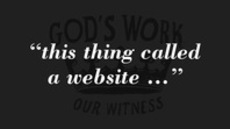
“this thing called a website …”
December 04, 2011
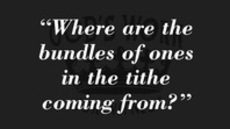
“Where are the bundles of ones in the tithe coming from?”
December 04, 2011

Sorry about the Didgeridoo
December 04, 2011
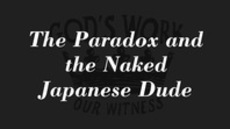
The Paradox and the Naked Japanese Dude
December 04, 2011
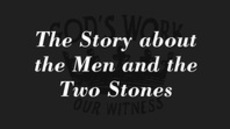
The Story about the Men and the Two Stones
December 04, 2011
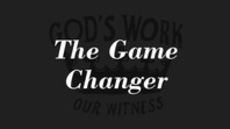
The Game Changer
December 04, 2011
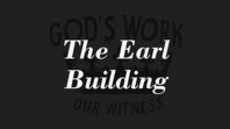
The Earl Building
December 04, 2011
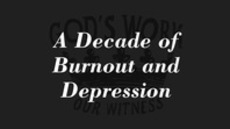
A Decade of Burnout and Depression
December 04, 2011

Ballard or Bust
December 04, 2011

The Church Goes Multi-Site
December 04, 2011
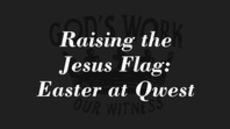
Raising the Jesus Flag: Easter at Qwest
December 04, 2011
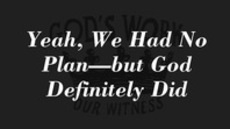
Yeah, We Had No Plan—but God Definitely Did
December 04, 2011

How Much Does God Want You to Give?
December 04, 2011
